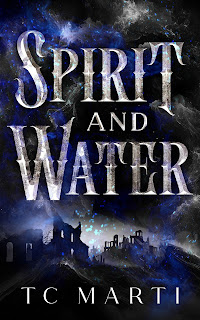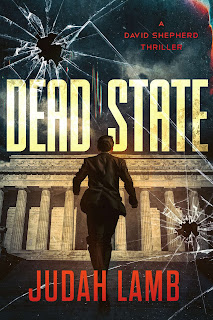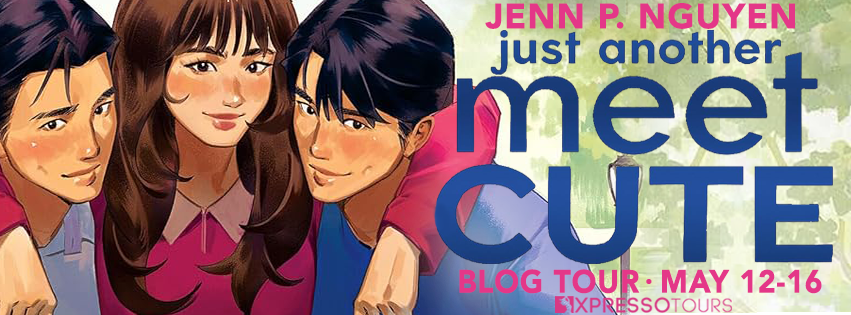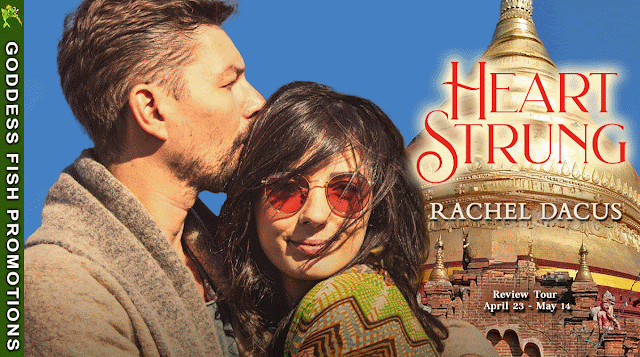The Buddha and the Bee: Biking through America's Forgotten Roadways on a Journey of Discovery
by Cory Mortensen
GENRE: Memoir
BLURB:
...But this is NOT a typical blah-blah-blah memoir
Planning is for sissies. A solo bike ride across the country will be filled with sunshine, lollipops, rainbows, and 80 degree temps every day, right? Not so much. The Great Plains, Rocky Mountains, an alkaline desert, and the Sierra Nevadas lay miles and days ahead. Disappointment with unrealized potential, and the thirst for what’s next drew farther away in the rotating wide-angle shockproof convex rear-view mirror.
"I will ride my bike down a never-ending ribbon of asphalt wearing a backpack."
Cory Mortensen began his bike ride across the United States from Chaska, Minnesota, to Truckee, California, without a route, a timeline, or proper equipment. Along the way, he gained more than technical skills required for a ride that would test every fiber of his physical being and mental toughness. Ride along as he meets “unusual” characters, dangerous animals, and sweet little old ladies with a serious vendetta for strangers in their town.
Humor ■ Insight ■ Adventure ■ Gratitude ■ Peace
From long stretches of road ending in a vanishing point at the distant horizon, to stunning vistas, terrifying close calls, grueling conditions, failed equipment, and joyous milestones he stayed the course and gained an appreciation for the beauty of the land, the genius of engineering and marvel of nature.
Excerpt:
DAY TWENTY-FOUR
It seemed as if I was the only person on this road. I saw no cars, no trucks. I didn’t even see an airplane or contrail. The human race could have been completely wiped out, and I wouldn’t know it, just like I didn’t know what was going on back east a few days ago. As far as I knew, it was just me and the clerk at the Maybell General Store. My situation could be worse. Juliane Koepcke was seventeen years old when, on Dec 24, 1971, the Lockheed Electra OB-R-941 commercial airliner the she was a passenger on was struck by light- ning. The plane immediately broke up in the air. Still strapped to her seat, she fell two miles into the jungle. She survived the fall, with a broken collarbone, a gash on her arm that would eventually become infested with worms, and her right eye swollen shut. She spent ten days alone in the Amazonian rainforest, following a stream, wading through knee-deep water, until eventually she came across a group of fishermen. After two weeks spent recovering, she led a search party back into the jungle to locate the crash, ultimately finding her mother’s body.
And here I thought I was having a bad day.
Fighting the headwind, I occasionally took time to stop and stare at the road as it vanished into the horizon. I had been biking for forty minutes and gone only five miles.
I hoped to see a town, a house, a billboard—anything that showed signs of human life—but it was just me and the road and a rather large coyote.
“Coyote?!”
A coyote stood across the road, looking directly at me.
I had some important questions. What was I supposed to do when I came across a coyote? Were they aggressive? Did they attack humans? Were they fast? Could I out-pedal him? Not with this headwind. He could catch me without even having to run.
In the lore of Indigenous Americans, the coyote was many things. To some tribes, it was a hero who created, taught, and helped humans; to others, a warning of negative behaviors like greed and arrogance; still others looked at the coyote as a trickster who lacked wisdom—he got into lots of trouble, but was clever enough to get out of it.
This part of North America was home to the Snake Indians. The Snake Indians were made up of the Northern Paiute, Bannock, and Shoshone. The Bannock believed the coyote came to help and did good deeds for the people.
I looked west and so did the coyote. I looked back at the coyote, he back at me, and then he looked west again and bobbed his head, as if to say, “Let’s go.”
I started pedaling. The headwind continued; my coyote com- panion making everything a bit surreal. He was now part of my journey. I put off any thoughts of him being an adversary. He was helping me get through the day.
“You live around here?” I asked the coyote. The coyote gave no answer.
“You have family? Wife? Kids?” Still no answer.
“Do you know if there is a good restaurant in Dinosaur? I’m really hungry.”
Nothing. He could only be of so much help, I guess.
We moved together along Victory Highway, fighting the wind.
Over the next few miles, I watched him as he pranced over the mounds along the highway. He’d stop and wait for me when he got too far ahead, then would continue once I caught up. I was no longer thinking about the wind or the heat or the bumpy road. I thought about the people who had lived along the Yampa River. Ruins of the Fremont people dated back as far as 1500 BC. Their petroglyphs told their stories. The Snake, Ute, and Navajo came after the Fremont and made the land their new home.
Later came the cowboys. Butch Cassidy and the Wild Bunch, Matt Warner, and Isom Dart all traveled this route when it was just a dusty horse trail, known as the Outlaw Trail.
And as I rode along with my coyote and wistful thoughts, there it was: the all too familiar sound of ninety-five pounds-per-square- inch of air leaving my rear tyre.
The coyote heard it, too. Perhaps the sound startled him, per- haps it let him know dinner was ready. I looked down at my tyre and then at him. His body was turned, now facing me. I felt like perhaps our relationship had changed without my input. I thought back to lunch with my dad, when he asked if I was bringing a gun for protection. Then I looked at my flat tyre.
I took the pack off the bike, flipped the bike upside down to remove the rear wheel, and started removing the tyre and replacing the tube, as fast as I could. I looked up to see what the coyote was doing, but he was gone, vanished. I was relieved but also sad, as I was once again alone.
INTERVIEW WITH Cory Mortensen
Do you have any tattoos? Where? When did you get it/them? Where are they on your body?
Yes, I have one “tattoo”. I was always opposed to getting a tattoo personally. “No distinguishing marks” for the police. Really it was just the whole idea of something permanent. In 2002 I sat down and decided I was going to get a tattoo. After some sketches and cocktails, I designed the tattoo that defined all that I represented. While wandering around Santiago, Chile, I came across a group of people hanging out, covered in tattoos. I asked them where one could acquire a tattoo and 10 minutes later, I was in a room with two other guys and 3 tattoo artists. I handed him my design. I originally wanted it located in the middle of my back. When I realized I wouldn’t be able to apply the required medical cream to my back, I opted for my upper right shoulder so I could reach it. I stared at the guy next to me getting a full back tattoo as my artist started in. About 3 minutes after outlining 1/100th of the design I gave him, I broke out in a cold sweat. Told him to stop, paid him five bucks and left. So I have a tattoo, albeit partial.
Is your life anything like it was two years ago?
It’s a little more settled. In 2013, I sold my business. In 2015, my wife and I sold everything and took off to South America. Essentially everything we owned fit in our backpacks. Two years ago, we were wrapping up from two years of wandering around South America with our backpacks, trekking, volunteering. Our return back to Minneapolis involved sailing from Columbia to Panama by way of the San Blas Islands, flying to Dallas, Texas, and riding our bicycles from Dallas to Minneapolis over 16 days. Now, we have jobs, a house with stuff in it, a cable subscription and two cars.
How long have you been writing?
I’ve been writing since high school. I wrote for the high school newspaper -- I even started an underground “rag”. I don’t recall the name, but I used the school’s paper and copy machines after hours.
Writing was a creative escape and very much influenced by bands like XTC, Jethro Tull, The The, and Bauhaus; along with stories by Poe, Coolidge, and the world of Dada, specifically Tristan Tzara poems.
My senior year, my buddy was writing some notes. I asked him what they were for and he told me there were auditions for giving the graduation speech, which was happening in 20 minutes. I grabbed my notepad and hammered out a speech and was ultimately selected to give one of the three graduation speeches. The irony was, I technically wasn’t allowed to graduate as I had 20+ days of detention I still owed. When I walked across the stage, my little folder had no degree.
I took every creative writing class I could in high school and the short time I spent in University. After that, I would just write, alone at night in the dark with my eyes closed. Type type type away on the computer and then print out pages and pages. Most of it was horrible, some brilliant -- brilliant at the time, anyway. I journaled all my cross-country motorcycle trips, road trips, and international escapes during my 20’s. Honing my skills.
Another activity a friend of mine, who recently passed, and I would do would be to sit at the bar. I would write a paragraph… completely random, a middle of some story I concocted onsite. He would add to it, again in a random way as to how he saw the next paragraph to follow, I would then add the next, and then him, and repeat. Typically until bar close. Aside from that I wrote some blogs, snippets here and there, copy for products for my company, but never a book.
What advice would you give a new writer just starting out?
Don’t listen to anyone, put horse blinders on and just write.
The best part of writing is all the words are there, it’s just a matter of gathering them in a way that tells your story in your own voice. The bad thing is, if you compare yourself to others you may get frustrated and quit. You don’t want to quit, however you do want to step away. Don’t compare your work to others’, don’t read others’. As a matter of fact, assume that you are writing the first book of its kind.
Embrace the fact that the first, second and possibly fourth rendition will suck. Write it, put it down, walk away. Walk far away. Walk a month away. Then review, then reflect and then start over. Repeat until it’s complete. Remember: it’s never complete.
Tell us something about your newest release that is NOT in the blurb.
Returning to the person I was at the beginning of the book was hard. In the case of this book, a memoir, I was already past the person I had become and had to return to the person I was before I became the person at the end of the book. It was hard to look back at that -- it was hard to return to that person, but it allowed me to remember how much life I had lived and what I was and am capable of doing.
AUTHOR Bio and Links:
Cory Mortensen has ridden his collection of bicycles over a million miles of asphalt, dirt, mud, and backroads. In addition to the cross-country journey detailed in this book, he has traveled to over fifty-five countries, cycled from Minneapolis to Colorado solo to raise money for children born with congenital heart defects. He’s completed sixteen marathons on five continents, and survived three days of running with the bulls in Spain.
Cory is a certified Advanced PADI diver, and has enjoyed taking in life under the waves in locations all over the world. In 2003, he took time off from roaming, and accidentally started and built a company which he sold in 2013. That same year he married his best friend and explored the state of Texas for two years. The couple sold everything they owned, jumped on a plane to Ecuador and volunteered, trekked, and explored South America for sixteen months before returning to Phoenix, Arizona, where he works as a consultant and is soon to be a bestselling author.
The Buddha and the Bee is his first memoir in which he shares how a two month leave of absence redefined his life’s trajectory of sitting behind a desk and his decision to break society’s chains so he could live life on his terms.
Website ~ Twitter ~ Facebook ~ Instagram
Buy Links:
Amazon: Hardcover ~ Paperback ~ Kindle
Indiebound: Hardcover ~ Paperback



























































.jpg)










4 comments:
Nice to meet you, Cory! I enjoyed the excerpt and the interview, your book sounds quite fascinating! Thanks for sharing and good luck with the tour!
Thanks for sharing!
sounds like a fun one
I like the beautiful artwork on the cover. Thanks for the giveaway!
Post a Comment